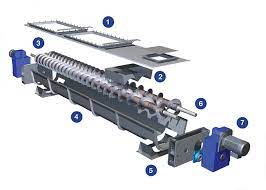
Manual Torque Multipliers v/s Pneumatic Torque Screwdrivers
When it comes to tightening bolts or nuts, torque tools are an essential part of any mechanic’s toolkit. Two popular options are manual torque multipliers and pneumatic torque screwdrivers. Although both tools are used for similar tasks, they have some fundamental differences that may make one more suitable for your specific needs. In this article, we will explore the differences between manual torque multipliers and pneumatic torque screwdrivers.
What is a manual torque multiplier?
A manual torque multiplier is a mechanical tool used to increase the torque applied to a fastener. These tools are often used in applications where high torque values are needed, but space or weight limitations prevent the use of larger tools. A manual torque multiplier works by using a set of gears to multiply the force applied by the user to the tool, resulting in a higher torque output.
Advantages of manual torque multipliers
One of the significant advantages of manual torque multipliers is their portability. They are lightweight and compact, making them easy to transport and use in tight spaces. Additionally, manual torque multipliers are relatively inexpensive compared to other torque tools, making them an excellent choice for those on a budget.
Disadvantages of manual torque multipliers
The primary disadvantage of manual torque multipliers is that they require physical effort to operate. They are not suitable for applications where a high volume of fasteners needs to be tightened quickly. Additionally, manual torque multipliers have limited torque range, which means they may not be suitable for all applications.
What is a pneumatic torque screwdriver?
A pneumatic torque screwdriver is a tool that uses compressed air to tighten or loosen fasteners. These tools are often used in assembly line production, where a high volume of fasteners needs to be tightened quickly and accurately. A pneumatic torque screwdriver works by using a motor and a clutch system to deliver the desired amount of torque to the fastener.
Advantages of pneumatic torque screwdrivers
One of the significant advantages of pneumatic torque screwdrivers is their speed. They can tighten or loosen fasteners quickly, making them an excellent choice for assembly line production or other high-volume applications. Additionally, pneumatic torque screwdrivers are highly accurate and repeatable, ensuring that each fastener is tightened to the desired torque.
Disadvantages of pneumatic torque screwdrivers
The primary disadvantage of pneumatic torque screwdrivers is their dependency on an air supply. This means that they are not suitable for applications where compressed air is not available, such as remote worksites or areas with limited power supply. Additionally, pneumatic torque screwdrivers can be more expensive than other torque tools like Electrical Torque Screwdriver due to their complexity and reliance on compressed air.
Conclusion
Both manual torque multipliers and pneumatic torque screwdrivers have their own unique advantages and disadvantages. Choosing the right tool for your application will depend on factors such as torque requirements, space limitations, and budget. By understanding the differences between these two torque tools, you can make an informed decision about which one is best for your specific needs.


